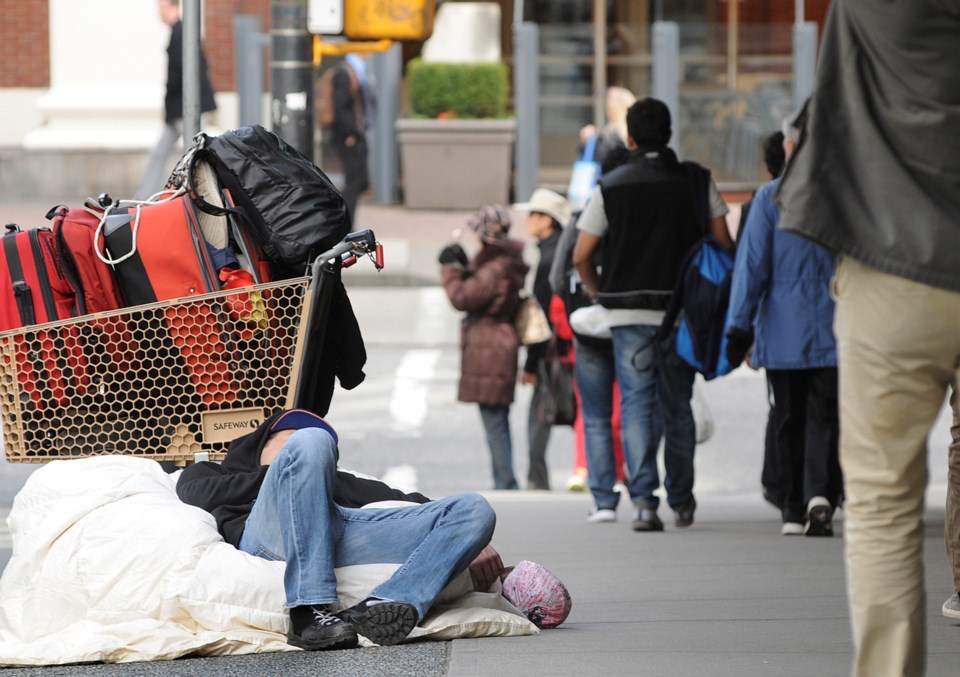Two Â鶹´«Ã½Ó³»residences will offer a form of intense homecare to 56 tenants whose needs related to mental illness and addiction are not being met by the province’s current housing and healthcare systems.
Minister of Mental Health and Addictions Sheila Malcolmson announced Thursday that Jim Green Residence on Alexander Street and the Naomi Place modular housing building on Copley Street will participate in the program.
“This new housing program will provide substantially increased supports, healthcare services, and supports for people with significant mental health, substance use and other complex challenges where they live,” Malcolmson told reporters.
The program is in addition to a similar one Â鶹´«Ã½Ó³»Coastal Health has operated for the past year at two other undisclosed housing sites, where 30 people are getting care not widely available in current housing and healthcare systems.
The programs are focused on people with brain injuries and mental health and addiction challenges, who often end up on the street because they are hard to house, with some acting out and contributing to public disorder and crime.
Mayor Kennedy Stewart joined Malcolmson at the virtual news conference and commented on the current program operating in Vancouver, details of which were reported Jan. 13 by Â鶹´«Ã½Ó³».
“The early results have been tremendous — fewer overdoses, fewer hospitalizations, fewer conflicts between neighbours, fewer calls to the police,” Stewart said. “And now thanks to today's provincial announcement, we are going even further with the rollout of complex care housing.”
Housing sites in Surrey and Abbotsford will also participate in what Malcolmson described as a “groundbreaking approach” to addressing the unmet needs of the province’s most vulnerable people.
Health authorities in combination with non-profit housing providers will serve approximately 100 people between Jim Green Residence, Naomi Place, Foxglove in Surrey and Red Lion in Abbotsford.
Total cost is estimated at $4.8 million.
Nurses, peer and social workers and other health professionals will provide the services, with a focus on physical, mental health and substance use care. The service will include “psychosocial rehabilitation” and cultural support for any Indigenous tenants who participate.
Daily meals are also key to the programs.
Malcolmson emphasized the programs are voluntary and that current and future tenants will never lose their spot in the system, whether they continue to live at a residence.
“A central tenet of complex care housing is that the housing here is permanent for them — they will not be evicted because of vulnerabilities and their complex needs,” she said.
“And if they do go to a higher level of care — hospitalization or perhaps being committed under the Mental Health Act, for example — that housing will be retained for them so that they will not —in this model — ever be discharged to homelessness.”
Â鶹´«Ã½Ó³» reported Jan. 17 that 225 people with "no fixed address" died in Â鶹´«Ã½Ó³»in the past five years.
A memo from Â鶹´«Ã½Ó³»city hall staff to council in November suggested the rate of homelessness "remains the same or perhaps may have increased" since March 2020, when volunteers counted 1,548 people living in some form of shelter and 547 on the street.
@Howellings


